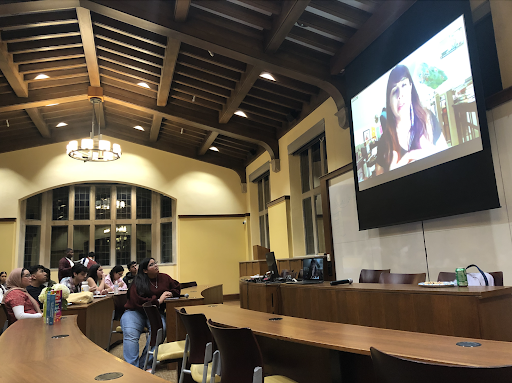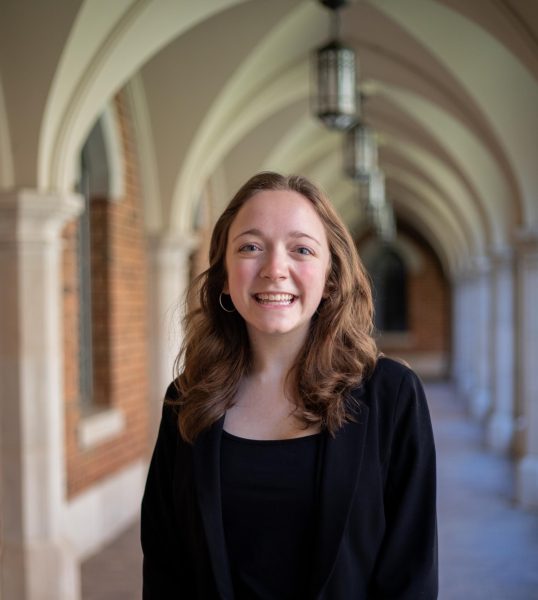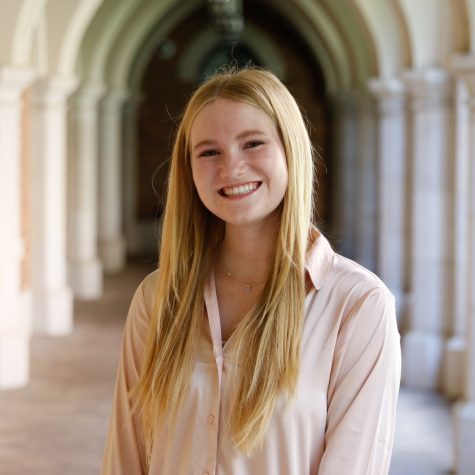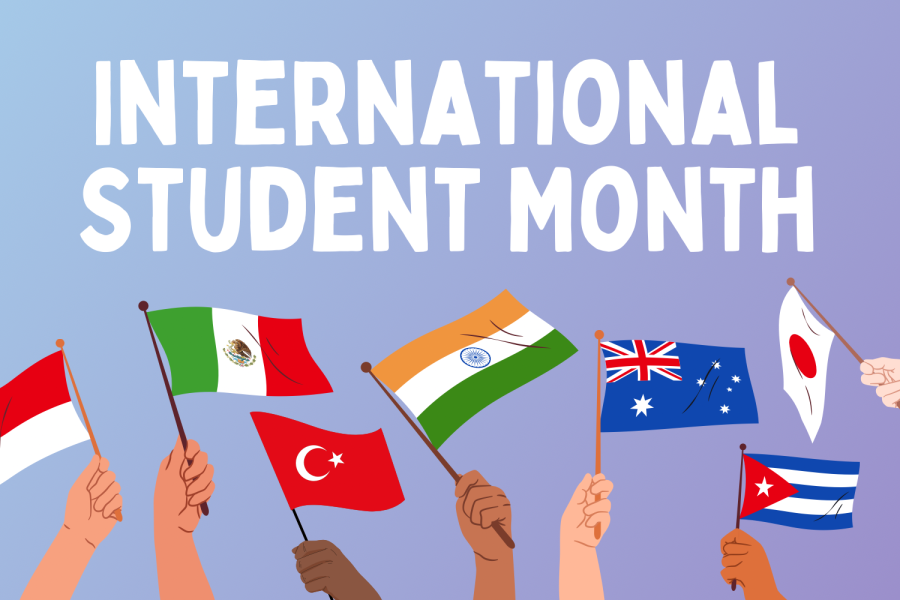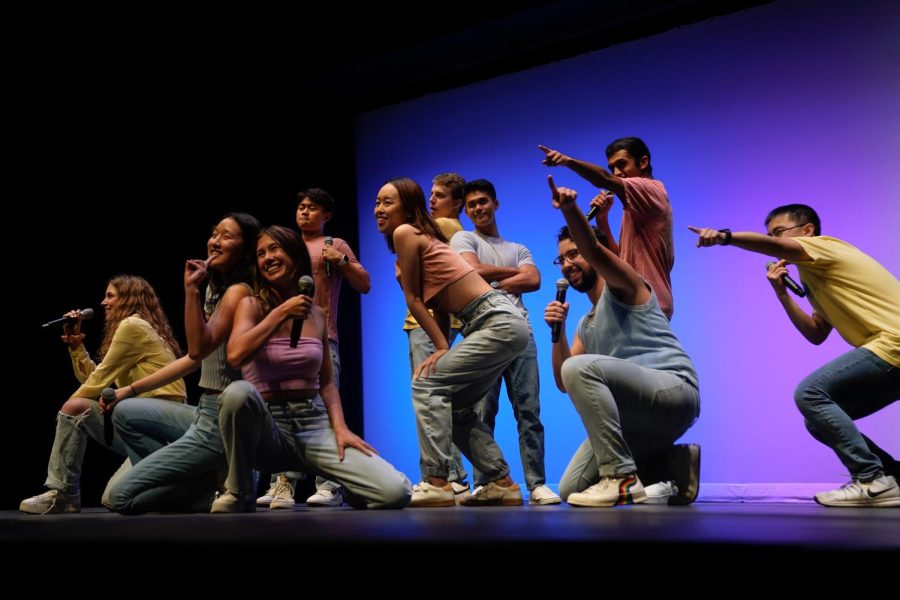The annual Latin American/Hispanic Heritage Month returned to Vanderbilt with the first fully in-person commemoration in two years. LAHHM is celebrated in the U.S. from Sept. 15-Oct. 15, and brings together those who have heritage in Central and South American countries, Mexico, Spain and the Caribbean.
LAHHM programming for students was organized at Vanderbilt by the Student Center for Social Justice and Identity and began with a block party event on Sept. 15. In a message to The Hustler, an SCSJI representative said the opening of the Multicultural Community Space in October 2021 and the return to in-person events have led to a more “expansive” calendar of events this year.
“SCSJI has focused on hosting intentional, culturally relevant, and impactful identity and heritage-based programs,” the representative said. “LAHHM is meant to be a beautiful, uplifting celebration and encourage community connections across all levels of the institution.”
Similar to previous years, LAHHM’s theme was SomosVU, which means “We are Vanderbilt” in Spanish. According to the website, the phrase, developed by the Associate Director of the Center for Latin American, Caribbean and Latinx Studies Gretchen Selcke in 2019, is meant to inclusively connect students of Latin American and Hispanic cultures.
“[SomosVU] addresses the need for the visibility of Latinx presence, influence and representation on campus while honoring the accomplishments of Latinx leaders and groups across Vanderbilt’s campus,” the representative said.
LAHHM at Vanderbilt also includes events for faculty members and alumni, which are hosted by CLACX and alumni groups. This programming included a discussion titled “What Makes a Good Cup of Coffee?” with the Vanderbilt Association of Hispanic and Latinx Alumni on Oct. 7, led by professor of anthropology Ted Fischer.
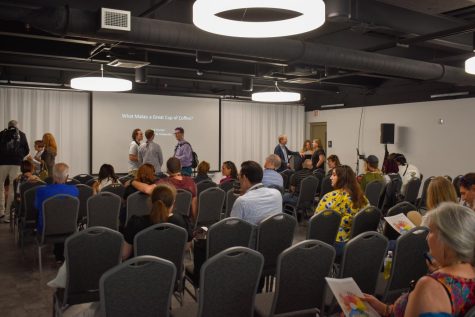
ALAS also hosted a number of events for students. On Sept. 26, ALAS held an advocacy event titled “How to Heal from Colorism and Racism” in collaboration with the Asian American Student Association, the Black Student Association, the South Asian Cultural Exchange and the Middle Eastern Student Association. With over 90 students in attendance, this event was held with the goal of discussing their experiences with racism and colorism with those outside their own communities. Senior and ALAS President Shelby Kuehnle expressed her enthusiasm with the high turnout of the event and the importance of the conversations that were held among students. This event comes after the controversy leading up to last year’s Café con Leche showcase.
“We [ALAS] wanted to make sure we had a dialogue about it [colorism], to address it to make sure students on campus understood that we know it’s an issue,” Kuehnle said. “It’s something we can hopefully heal from, not right away, but through more of these kinds of discussions and more understanding through cross-cultural exchanges.”
ALAS also held a keynote speaker event with Erika Sánchez, author of “I Am Not Your Perfect Mexican Daughter,” on Oct. 3. Sánchez is known for books that explore ideas of identity and the struggles of growing up in America with immigrant parents. At the event, Sánchez, virtually read excerpts from her new memoir “Crying in the Bathroom,” which was published in July, and answered questions from students. One question was asked about Sánchez’s travels to Mexico to connect with her heritage.
“I felt like it [Mexico] was where I was the happiest, and I used to want to return to Mexico. And, you know, now I’m realizing that my parents had to flee so my longing is such a paradox,” Sánchez said.
Sánchez also spoke about her experience as a first-generation college student and gave advice to students experiencing similar pressures.
“The pressure that I put upon myself in college was so intense. I was afraid to fail,” Sánchez said. “I feel that the best way to navigate those types of things is by finding your people, building a community, sharing resources and being good to each other.”
Sánchez’s book “I Am Not Your Perfect Mexican Daughter” is taught in many Introduction to Latino and Latina Studies classes at Vanderbilt.
“Julia, who is the main character in that book, she’s not very likable,” Kuehnle said. “[Latin Americans] have strong ideas about how you’re supposed to act in terms of your gender identity. I think it’s good to show that there are multiple perspectives on how you can be as a Latin American woman.”
Sophomore and ALAS Special Events Co-Chair Diana Zamarripa said she was glad Sánchez could speak at Vanderbilt, especially since her work is popular among students.
“It was really meaningful to hear her response to the questions like ‘what does Mexico mean to you?’ because it really allowed students to reflect on their roots and the power they hold,” Zamarripa said.
First-year Suzanne Navarro described that LAHHM events helped students, especially first-years, feel closer to home.
“Hispanic Heritage month serves as a way for us to stay connected to our culture which is extremely important as most of us are far away from home and in a part of the country that does not have many Latinos,” Navarro said. “That is why the events that come with Hispanic Heritage Month that happen on campus and locally at places like Plaza Mariachi matter to us; they remind us of home and our culture.”
LAHHM will conclude with the annual Café con Leche cultural showcase on Oct. 22. This event was held in the spring in previous years but was moved to the fall for the first time this year due to scheduling issues and a desire to include it in the LAHHM calendar of events.
“It makes more sense for us to have our big celebration of our culture during our cultural history month,” Kuehnle said.
Kuehnle added that she appreciates the support ALAS has received from SCSJI but wants to see the center host more events that focus on issues faced by the Latin American and Hispanic communities in the future.
“They [SCSJI] could definitely include events with more dialogues, especially between the administration and the student body,” Kuehnle said.

